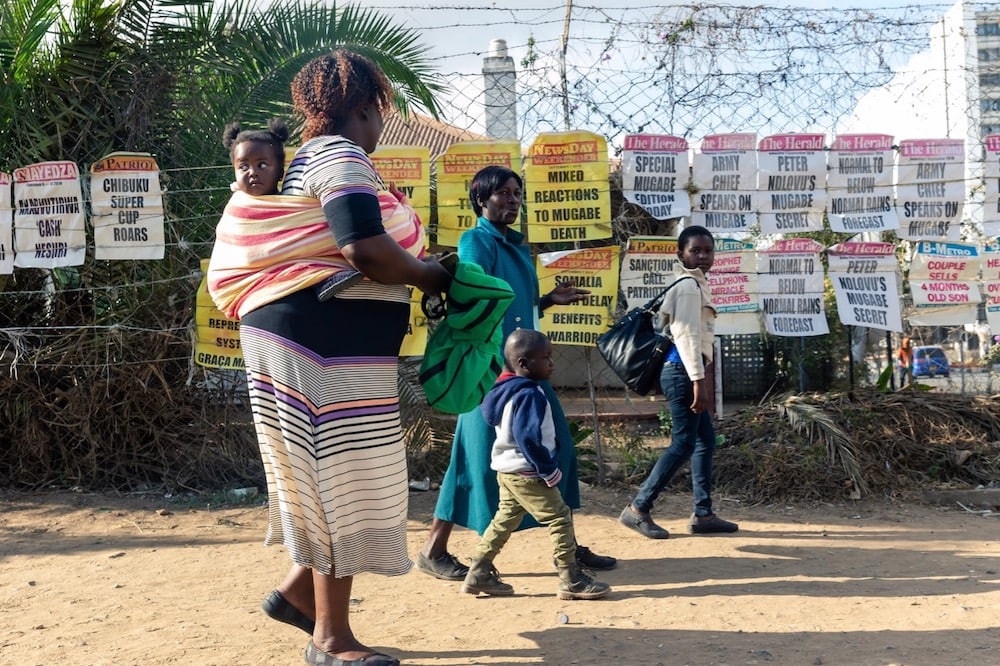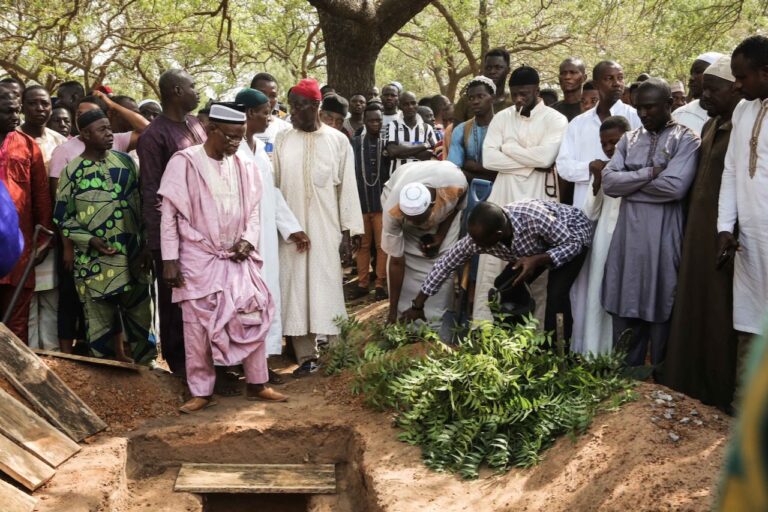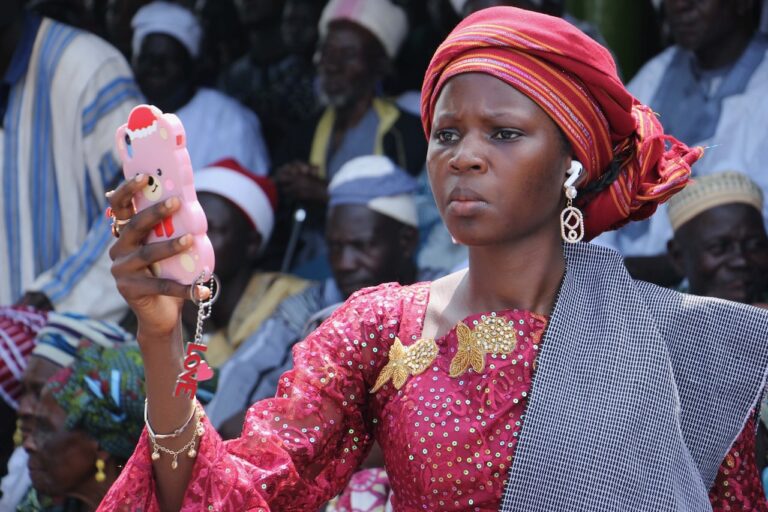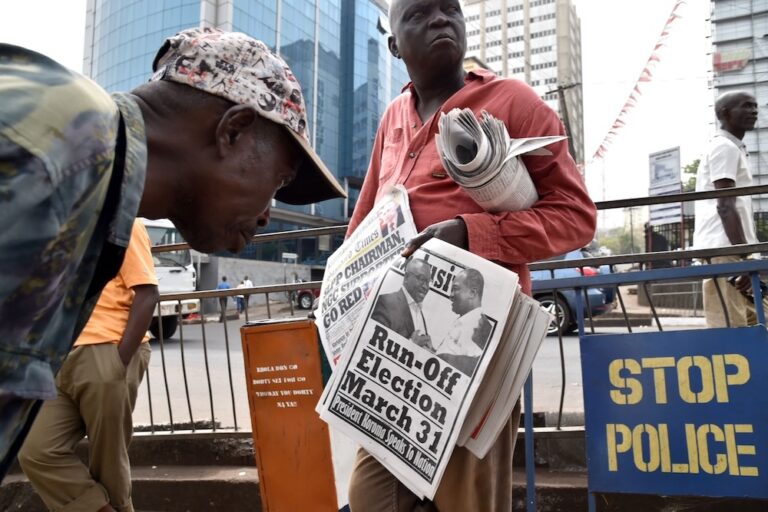During their meeting with the ACHPR Special Rapporteur on Freedom of Expression and Access to Information, Ourveena Geereesha Topsy-Sonoo, AFEX members discussed measures to be taken to continue safeguarding freedom of expression in Africa.
This statement was originally published on africafex.org on 6 October 2022.
Introduction
The Eighth General Meeting of the African Freedom of Expression Exchange (AFEX), a network of African freedom of expression and media development organisations which are members of the global press freedom advocacy network, IFEX, was held at the Radisson Blu Hotel in Lusaka, Zambia, Monday, September 26 and Tuesday, September 27, 2022.
The meeting was organized by the host organization of the AFEX Secretariat, the Media Foundation for West Africa (MFWA), and was presided over by AFEX Steering Committee Chairperson, Mr. Edetaen Ojo, Executive Director of Media Rights Agenda (MRA). It was attended by delegates representing 12 AFEX member organisations from West, East, Central and Southern Africa. Also in attendance were representatives of AFEX’s parent network, IFEX, namely Reyhana Masters, IFEX Africa Regional Editor; Elizabeth Rivera Rivas, IFEX Communication Director, and Nazarene Njeru, IFEX Network Engagement Coordinator.
Delegates deliberated on how to respond to the growing incidence of attacks against journalists in many parts of Africa, as well as the entrenched culture of impunity for such crimes against journalists in many countries in the region. They also discussed monitoring and reporting mechanisms at national and regional levels to promote the safety of journalists and access to public information and expressed concern about the alarming level of information disorder, internet shutdowns, attacks on journalists, counterproductive regulatory frameworks, among other issues.
The meeting also discussed electoral processes in Africa in the context of the heightened constraints on freedom of expression and media freedom in the lead up to and during voting periods, as well as the impact of such situations on free, fair and credible elections in African countries.
Delegates discussed how to ensure compliance by Governments and other stakeholders in the electoral process with applicable instruments as well as relevant norms and standards established by the African Union and its organs.
The meeting was rounded up with a three-hour dialogue between AFEX members, representatives of several freedom of expression organisations in Africa and beyond, and the Special Rapporteur on Freedom of Expression and Access to Information in Africa, Commissioner Ourveena Geereesha Topsy-Sonoo. The engagement focused on how to enhance collaboration between civil society organizations and the Special Rapporteur, as well as the African Commission on Human and Peoples’ Rights to safeguard and sustain freedom of expression rights in Africa.
Observations and Recommendations
The delegates:
- Called on Governments across Africa to begin the process of repealing or amending as necessary various laws, regulations, protocols and other measures adopted in response to the COVID-19 pandemic which imposed different degrees of restrictions on the fundamental rights and freedoms of their citizens, particularly the rights to freedom of expression, media freedom, access to information, privacy and digital rights.
- Resolved to better engage the special mechanism of the Commission, in particular, to increase public awareness about the Commission and its activities or decisions, strengthen advocacy around issues of concern in order to bring them to the attention of the Special Rapporteur and the Commission, documenting cases of violations of the right to freedom of expression and bringing them to the attention of the Special Rapporteur, submitting shadow reports to the periodic reports submitted by Governments, among other measures.
- Expressed concern about the deteriorating media freedom and freedom of expression environment in Africa, as evidenced by a surge in attacks on journalists and the violations of their rights in Nigeria, Uganda, the Democratic Republic of Congo, Zimbabwe, South Africa, Ethiopia, Chad, Somaliland, Central African Republic, Togo, Lesotho, Benin, Mozambique, Tanzania, Mali, Angola, Ethiopia, Cameroon, Uganda, Guinea, Zimbabwe, South Sudan, and Guinea Bissau, among others.
- Condemned the suppression of critical civil society voices through actions ranging from killings and other physical attacks, threats, arbitrary arrests and detention, to the use of crippling fines to stifle independent media and the sweeping suspension of operating licenses of large number of broadcast stations in order to prevent them from broadcasting.
- Further condemned the recurrent cases of widespread intentional disruption of access to the Internet, social media platforms and mobile phone services by Governments or regulatory authorities through measures like blocking access to such platforms, throttling, and other forms of network shutdowns in numerous countries, including Ethiopia, Burkina Faso, Chad, Senegal, South Sudan, Sudan, Uganda, and Algeria.
- Called on the Government of Uganda to withdraw a proposed legislation that seeks to criminalise the misuse of social media.
- Condemned political interference in the regulation of broadcasting, the arbitrariness in the allocation of broadcast licenses and the revocation of licenses, especially in Liberia, Malawi, and Nigeria, and the lack of independence of the broadcast regulatory authorities in many countries in Africa.
- Denounced the draconian approach of some Governments in revoking or cancelling broadcast licences of large numbers of broadcasting stations, ostensibly for the non-payment of license fees, with the resultant negative impact on media freedom and the ability of the populations in affected countries to access information through the media.
- Urged African governments to adopt good practice in media regulation by promoting media self-regulation in general and ensuring that regulatory authorities for the broadcast sector are independent and adequately protected against interference of a political, commercial or other nature, in accordance with the provisions of the Declaration of Principles on Freedom of Expression and Access to Information in Africa.
- Called on Governments in Africa to promote and facilitate the establishment of multi-stakeholder national mechanisms on the safety of journalists and other media practitioners who remain the major victims of freedom of expression violations, at both national and regional levels.
- Called on governments in Africa to formulate and implement regulations and policies that promote the exercise and enjoyment of human rights on the internet, including to ensure meaningful and affordable connectivity as well as to bridge the gender digital divide.
Adopted in Lusaka, Zambia, on Tuesday, the 27th day of September 2022.
Members of AFEX:
ADISI-Cameroon
Africa Freedom of Information Centre
Association for Media Development in South Sudan
Center for Media Studies and Peace Building
Collaboration on International ICT Policy in Eastern and Southern Africa (CIPESA)
Freedom of Expression Institute
Gambia Press Union (GPU)
Human Rights Network for Journalists – Uganda
Institute for Media and Society
International Press Centre
Journaliste en danger
Media Foundation for West Africa
Media Institute of Southern Africa
Media Rights Agenda
West African Journalists Association



